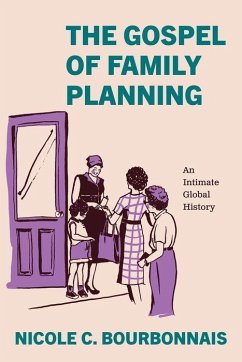"Over the course of the twentieth century, family planning took the world by storm. Starting in the 1930s, activists, international aid organizations, and government agencies embraced the notion that lowering birth rates were the solution to everything from hunger to underdevelopment and environmental degradation. Along the way, historian Nicole Bourbonnais argues, family planning played a role in several major ideological struggles, becoming entangled with feminism, nationalism, socialism, racial inequality, decolonization, and the Cold War. In The Gospel of Family Planning, Bourbonnais focuses on the doctors, social workers, nurses, consultants, church groups, and volunteers who gave force to the movement, as well as the many ordinary people affected by it. Using both microhistories and collective biographies, she shows how the practice of population control was instituted at an everyday scale and unpacks vexed questions surrounding issues of contraception and sterilization across varied cultural contexts. In so doing, she tracks how the debate over family planning shifted from one of population control to one about reproductive rights and justice. The book ultimately shows how family size became a matter of state interest and how, when, and why people became concerned with the size of other people's families, within their own countries as well as on the other side of the world"--
Hinweis: Dieser Artikel kann nur an eine deutsche Lieferadresse ausgeliefert werden.
Hinweis: Dieser Artikel kann nur an eine deutsche Lieferadresse ausgeliefert werden.








